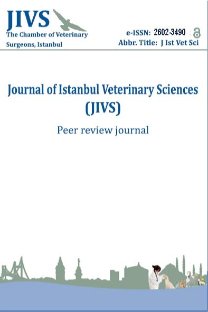A Comparative-multidisciplinary approach to the concepts of “consciousness” and “behaviour” in terms of human-animal resemblance and dissimilitude
The concept of "consciousness" is placed at the center of various researches from early historical periods
despite being named after alternative terms. After numerous attempts to clarify the concept by adopting
different viewpoints by different disciplines, the term is lately being addressed by a multidisciplinary
partnership formed by a number of areas such as evolutionary biology, evolutionary psychology,
neuroscience, comparative cognition apart from other ones. Since consciousness is originated from
nervous system- especially from the brain and body-mind wholism- it comes to existence as a result of
neuroanatomic and neurophysiologic constructions and functions/processes. Moreover, both mind/nervous
system/mind-body wholism and consciousness are being shaped by an integrated genetic-environmental
determinism. It is known that structure and function are always connected and function together
harmoniously. One another important point is the connecting link between "consciousness" and
"behaviour" which can be defined as "reactions exhibited by living organisms to the surrounding
environment and/or changes of the environmental conditions". All living beings act pursuant to biologic
adaptation to their own surrounding environment in order to provide the continuation of life and behave
according to this purpose. All behaviours emerge as a result of electrochemical processes of nervous
system - especially the brain. Brain and consciousness are the products of evolution. Modern science
reveals that living creatures exhibit an evolutionary relationship of structure and function, have
evolutionary, epigenetic, bodily/cerebral/mental grounds, mental properties/functions such as thoughts,
emotions etc. result from the integrity of primitive-developed constructions/functions and consciousunconscious
processes and animal cognition studies indicate that animals exhibit low-grade mental/
cognitive abilities that were previously attributed to only human beings. In this study, it is aimed to
evaluate the concepts of "consciousness" and "behaviour", the relationship between these two terms as
well as the conclusions of these determinations from a comparative-multidisciplinary perspective by
taking human-animal similarity and dissimilarity into consideration.
